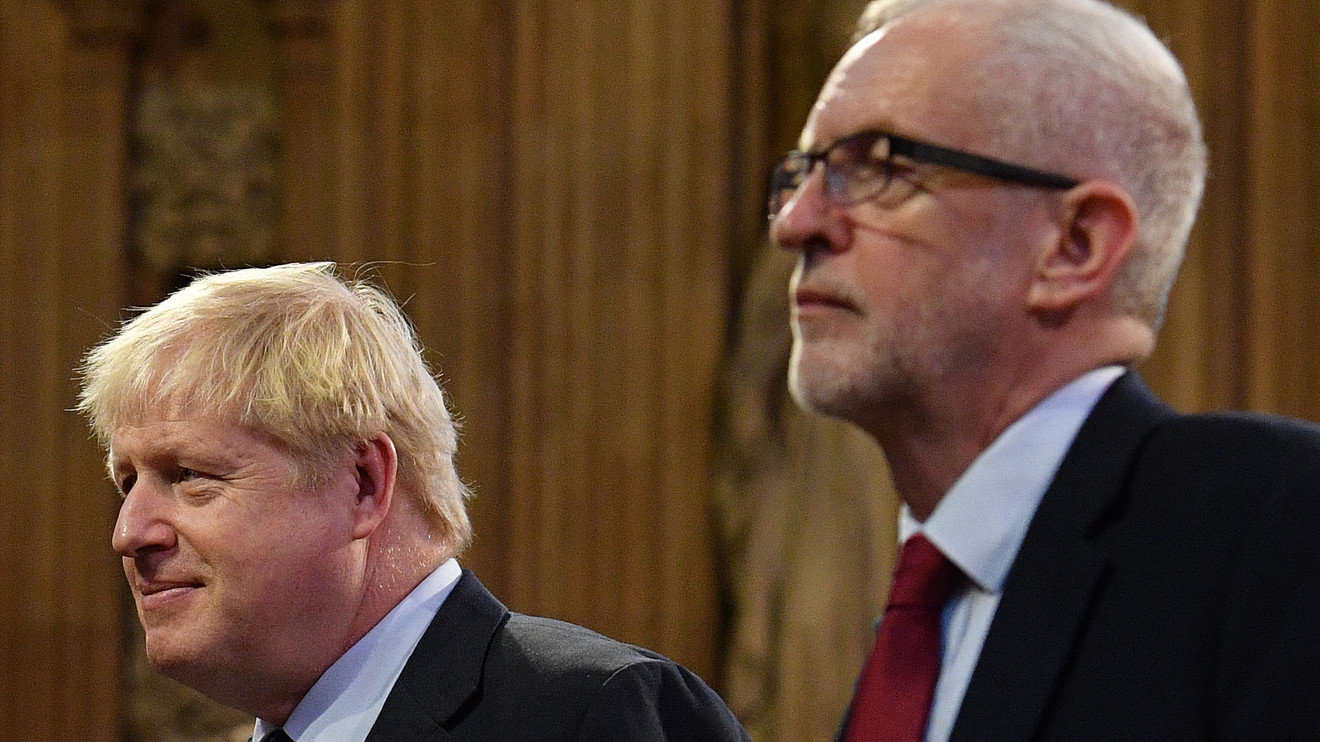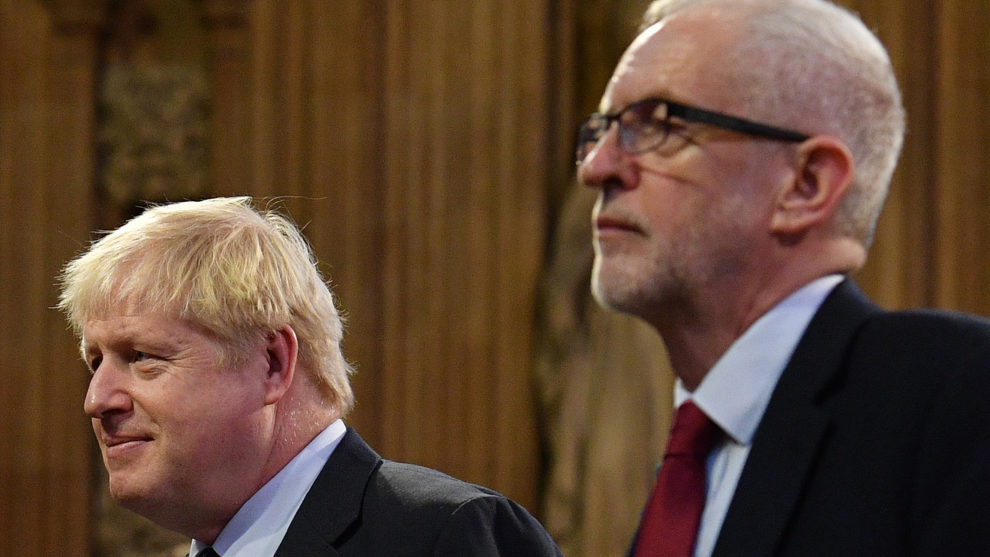
Here come the big spenders. Whatever the outcome of the EU summit that will decide the fate of Brexit later this week, the U.K. government will embark on a big spending binge in the next few years, judging by the programs of both the ruling Conservative party and the Labour opposition. This raises the question of whether any future government, whether right or left, will feel bound by any limit to the budget deficit and public debt.
The Queen’s speech confirmed that the government of U.K. Prime Minister Boris Johnson will spend billions on the National Health Service, police, education, the green transition and infrastructure. Labour meanwhile is not to be outdone. Its priorities may not be the same, but they will be as costly.
This doesn’t mean that the U.K. is headed for a fiscal showdown with bond markets — of the type that some eurozone countries such as Greece, Portugal or Italy had to face in the last few years. “Attack of the bond vigilantes” will not play in financial markets any time soon.
The U.K.’s fiscal situation
As all EU members, the U.K. is bound in theory by the deficit and debt limits set by the Maastricht treaty. Public debt is capped at 60% of gross domestic product, and the nominal government deficit at 3% of GDP. The U.K. government debt currently stands at a little over 85.2% and has been above the EU limit since 2010, according to the latest figures of the Office of National Statistics.
The deficit was down to 1.2% of GDP in the latest fiscal year, ending in March.
The U.K. debt level is higher than the EU average (80% of GDP in 2018) and the deficit twice as high (it has shrunk to 0.6% in Europe).
The cost of Brexit and beyond
Brexit has already cost the U.K., in the form of an economy that is today about 3% smaller than it would have been if voters had opted for staying in the EU in 2016. This has meant a loss of tax revenue for the government, and pressure on public finances.
Looking ahead, Brexit will coincide with the new spending round announced by the government last month, which would take spending to more than 2% of GDP, according to the Institute for Fiscal Studies, an independent think tank. But leaving without a deal, even with limited consequences, would push the deficit to twice that level, and debt to about 90% of GDP, a level the U.K. hasn’t seen since the 1960s.
No reason to panic
Even that level of debt wouldn’t be reason enough for the U.K. to start worrying about bond markets. France’s public debt, for example, stands at nearly 100% of GDP. If markets start worrying about the U.K., adjustment will come first through a decline of the pound sterling GBPUSD, +0.0873% . Currency flexibility is not a possibility offered to euro members.
Furthermore, like France and Germany, the U.K. is currently borrowing at negative real interest rates: the ten-year yield TMBMKGB-10Y, -9.63% on its government bonds , at 0.6%, is lower than inflation (1.7%), which helps stabilize the debt burden.
It can even be argued that with the shock of full-blown Brexit yet to register, some fiscal stimulus will be a good idea to help the economy through the next couple of years.
Finally, more spending on public services is long overdue. Even with the government’s latest announcements, total spending on public services as a share of national income is still lower than it was before the financial crisis, the IFS has noted.
That seems to indicate that in the short term, and at least until the economy recovers, tax cuts shouldn’t be on the economic policy agenda.











Add Comment